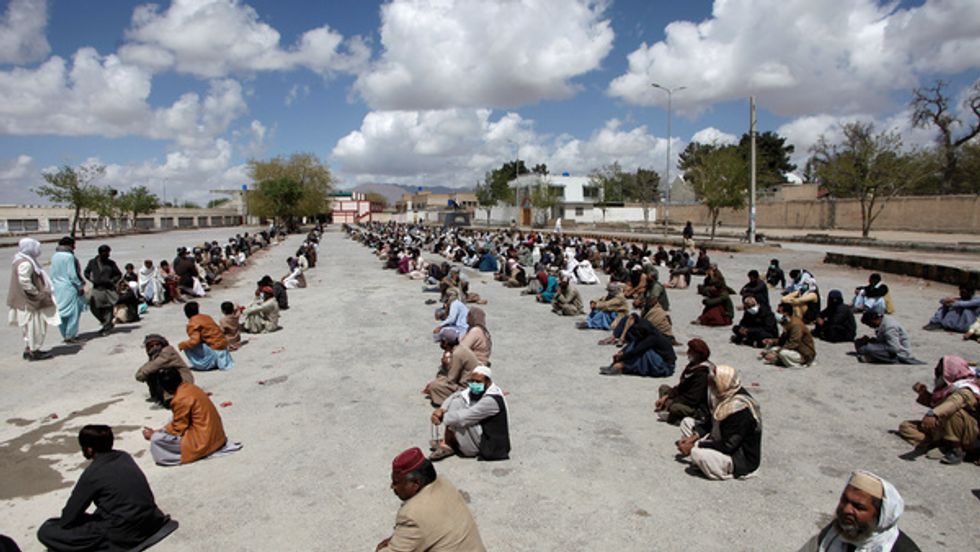The coronavirus epidemic COVID-19 has caused millions of children to be unable to attend school, play sports or carry out any type of community extracurricular activity. By spending more time than usual in their homes, minors are also exposed to a dizzying increase in audiovisual stimuli related to the pandemic.
This situation can make it difficult for them to understand what they see on the Internet or on television screens, listen to other people's conversations, and can be especially vulnerable to feelings of anxiety, stress and sadness.
For that reason, the United Nations Children's Fund has published a series of tips on how to talk to your children about the coronavirus and to be able to have a frank conversation that helps them understand and face this delicate situation.
UNICEF recommends starting the conversation by asking your children what they know about the disease. If they are very young and still unaware of the outbreak, it may not be necessary to raise the issue, but it is a good time to remind them of basic hygiene measures.
It is of utmost importance not to minimize or avoid possible concerns they may have. Understand their feelings and reassure them by explaining that it is natural to feel scared in such situations. As well as paying the utmost attention to them, you also need to understand that they can talk about it with you or with your teachers whenever you want.
Drawings, stories, or other activities can help start a discussion.
Honesty first of all
Children have the right to know the reality and to be informed, while adults have the responsibility to protect them from afflictions. It will be necessary to use language appropriate to the child's age, observe how he reacts and be aware of his level of anxiety.
If the answers are unknown, they should not be invented. One of the most recommended options is to look for solutions on the websites of specialized organizations such as the World Health Organization or UNICEF with your children. In turn, it is important to explain to them that not all the information in cyberspace is correct and that it is necessary to go to expert sources in the field
Learning to protect yourself can be fun
One of the best ways to keep children safe from the coronavirus and other diseases is to simply wash their hands regularly. On the internet, there are resources such as videos with songs or dances to learn these simple tasks in a fun way.
It is also advisable to teach them how to cover their elbows when coughing or sneezing, explain that it is better not to get too close to people who have these symptoms and ask them to tell us if they feel they have a fever, cough or breathing difficulties.
First of all, security
In our everyday environment, children are exposed to a host of images and it can be confusing to distinguish between fiction and reality, creating a false situation of imminent danger.
One way to deal with stress is to play around with them and calm them down. It is important to keep the same routines and schedules as much as possible, especially before going to sleep, or to create new ones in a different space.
If there is an outbreak of coronavirus in our environment, they should be reminded that they will probably not be infected, that a high number of people do not suffer from severe symptoms and that there are many people working to keep them safe.
Combat racial discrimination
The coronavirus outbreak has spread a lot of news of racial discrimination globally, so it is important to verify that your children do not suffer or collaborate with this threat.
It is important to explain that the coronavirus is not related to the appearance of a person, their origin or the language they speak. If they have been insulted or bullied at school, they should feel safe and tell a trusted adult.
We must remind them that school must be a safe space, that bullying is wrong behavior and that we must all contribute to promoting kindness and mutual support.
External help
It also highlights the importance of teaching children that people help each other with acts of kindness and generosity.
To do this, you can share the experiences of health professionals, scientists and youth who work to stop the outbreak and keep the population safe.
Beware
Helping children begins with oneself. If you are calm and in control of the situation before the news about the disease, children will perceive this type of response.
If you are nervous or worried, take time for yourself and get close to other family, friends, or trusted people in your community. Take time to do things that help you relax and recover.
Caution with personal conversations
It is important not to leave children distressed. At the end of a conversation, try to measure your level of anxiety by looking at your body language, study whether you use your usual tone of voice, and monitor your breathing.
Remind your children that they can have other difficult conversations with you at any time. Remind them that you worry, that you are listening, and that you are available whenever they feel worried.
Some countries, such as Italy and France, have already implemented a mortgage and rent settlement, but excluding a waiver for student loan interest, the U.S. Steps are still being made.
Now is not the time for lectures on the value of having an emergency fund.
"You can't take a side hustle right now," said Erin Lowry, 30, author of "Broke Millennial," a financial advice book that sought to prepare her for a rainy day like the present.
Many people, whether they telecommute, cut their time, lose their jobs or face some kind of financial crisis. We are at the point of making the best bad choices.
Here are some ways to prioritize.
1. Assess the damage
First, Lowry said: "You have to deal with your numbers."
Don't think of it as a budget, because the situation is changing so fast you can't really think long term. Deal with the breath and this month.
save money and donate to causes with DealAid
2. Stop fixed debt
Your lenders and banks have already sent you a sympathetic email about how they're there for help.
"We would like to share some of the ways we are here to help you in this current environment," Citibank currently states on its Coronavirus web page.
Take it on.
"Customers who say 'I'm standing here better than most active and do nothing,'" said Lynette Khalfani-Cox, CEO of AskTheMoneyCoach.com and author of "ero Zero Loan".
This goes for home loans, auto loans, student loans and utility payments.
3. Prioritize your needs
When it comes down to it, prefer housing because you have to keep a roof top roof over your head, Khalfani-Cox advised. Owners get more opportunity than tenants because it takes a long time to go through the foreclosure process.




















